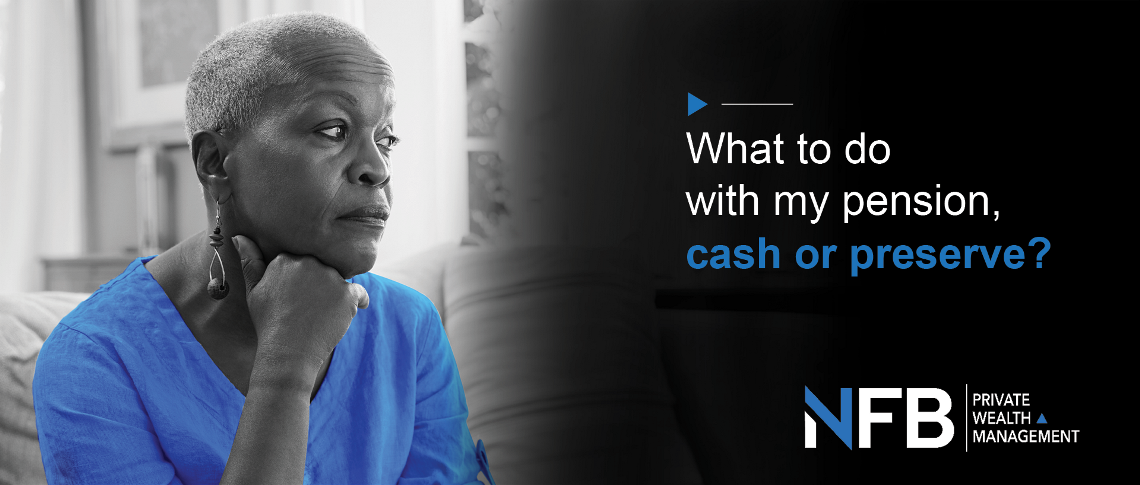Should I Cash in or Preserve?
Now is not the time to capitulate and exit markets.


I got retrenched in 2019. I am currently a paid up member of my ex employer's pension scheme. I haven't preserved or cashed my pension as yet. Can I lose my pension during this crazy virus period? What would be better to do - cash or preserve - under the current unusual circumstances?
Great questions. The current market conditions are making even seasoned investors rethink their past decisions and their approach going forward. I was reading a great article the other day on the Advisor Channel section of the Visual Capitalist. The article, published on the 2nd of April, was titled The Psychological Pitfalls of a Market Cycle and starts with a market chart overlaid with emotions. My sense is in that were in the area depicted by “capitulation”, “agony” and “depression”.
Let’s start on the risk of losing your pension fund
You get two types of pension fund: a +defined benefit fund, and a defined contribution fund; the way you have framed your question leads me to believe you are in a defined contribution fund. In a defined benefit fund, the security of your investment is with the employer –they give you a defined pension on retirement. However, a defined contribution fund’s liability is only to the extent of the value of the fund’s investments investment which are market-linked.
So, with this in mind, the risk of you losing your pension is based on the performance of the underlying investments. While the value of your accumulated pension benefit may be volatile, and a fair bit below its all-time high, it’s not going to zero. The asset allocation of a pension fund is governed in terms of Regulation 28 of the Pension Fund Act which limits the allocation to shares at 70%; typically, in a group scheme, the equity allocation would be below this. You should reach out to your previous employer and get some detail around how the pension fund is invested so you can get an understanding of the market risk. (I will leave prescribed assets for another article; this is a consideration for all pre-retirement assets)
The other type of risk to think about regarding ‘losing your pension fund’ is creditor risk. I’m going to steer away from getting into the granular detail, but the good news is that Section 37, along with its sub sections, of the Pension Fund Act offers protection against creditors.
On to the next part of your question where you asked whether to cash in or preserve your pension fund benefit
Depending on value of you pension benefit there is likely to be some tax payable if you cash it in. While on tax, the investment growth within a pension or preservation pension fund is, based on current legislation, not subject to tax – whereas a discretionary investment will be subject to some form of tax; be it income, dividend withholding, or capital gains tax. It’s likely to be tax-punitive for you to cash in your investment.
Personally, I prefer a preservation fund, as opposed leaving an accumulated benefit with an employer. The main reason for this is that you have control of your money, where and how it is invested. It may be that your costs are lower in an employer scheme, so you’ll need to decide what is important to you to help you make your decision. Also, remember that you have the chance to make a withdrawal from a preservation fund before retirement i.e. you will always have access to liquidity – although this is not recommended.
Irrelevant of whether or not you decide to preserve your accumulated pension benefit or stay in your previous employer’s fund, we would not advocate sitting in cash. Your age, risk propensity and overall portfolio construction will determine your asset allocation (the split between cash, bonds, property and equity) where it is very unlikely this would ever result in a 100% allocation to cash.
The fact that you are considering cash circles back to start of my response where I touched on the current market conditions and the psychological impact of this on investors. It is tempting to sit on the side-lines and let the current market conditions blow over. Doing this means you risk missing out some of the best days in the market, which contribute significantly to long term return; the following table from BofA Global Research illustrates this point:
| Missing the ten best days in any decade has negatively affected returns |
||
|---|---|---|
| Decade | Price Premium |
Excluding 10 Best Days Per Decade |
| 1930 | -42% | -79% |
| 1940 | 35% | -14% |
| 1950 | 257% | 167% |
| 1960 | 54% | 14% |
| 1970 | 17% | -20% |
| 1980 | 227% | 108% |
| 1990 | 316% | 186% |
| 2000 | -24% | -62% |
| 2010 | 190% | 95% |
| Since 1930 | 14,962% | 91% |
| Source: BofA Global Research. Data as of February 14, 2020. Past performance is no guarantee of future results |
||
Another recent example of the above is the 12 days in the S&P from the 13th of March onwards where the S&P had the 3 largest (non-consecutive) single day gains since the great depression.
In summary and regarding how to invest, now is not the time to capitulate and exit markets. Take your time and make a well-informed decision.
Good luck and stay safe.
Interested in more from Stephen - he has great articles that you may find helpful:
- Retiring soon? The chances are you’re as worried about the current market turmoil as you’ve ever been.
- Has the current market volatility left you questioning your investment strategy? Listen to Stephen's Podcast or read the transcript













